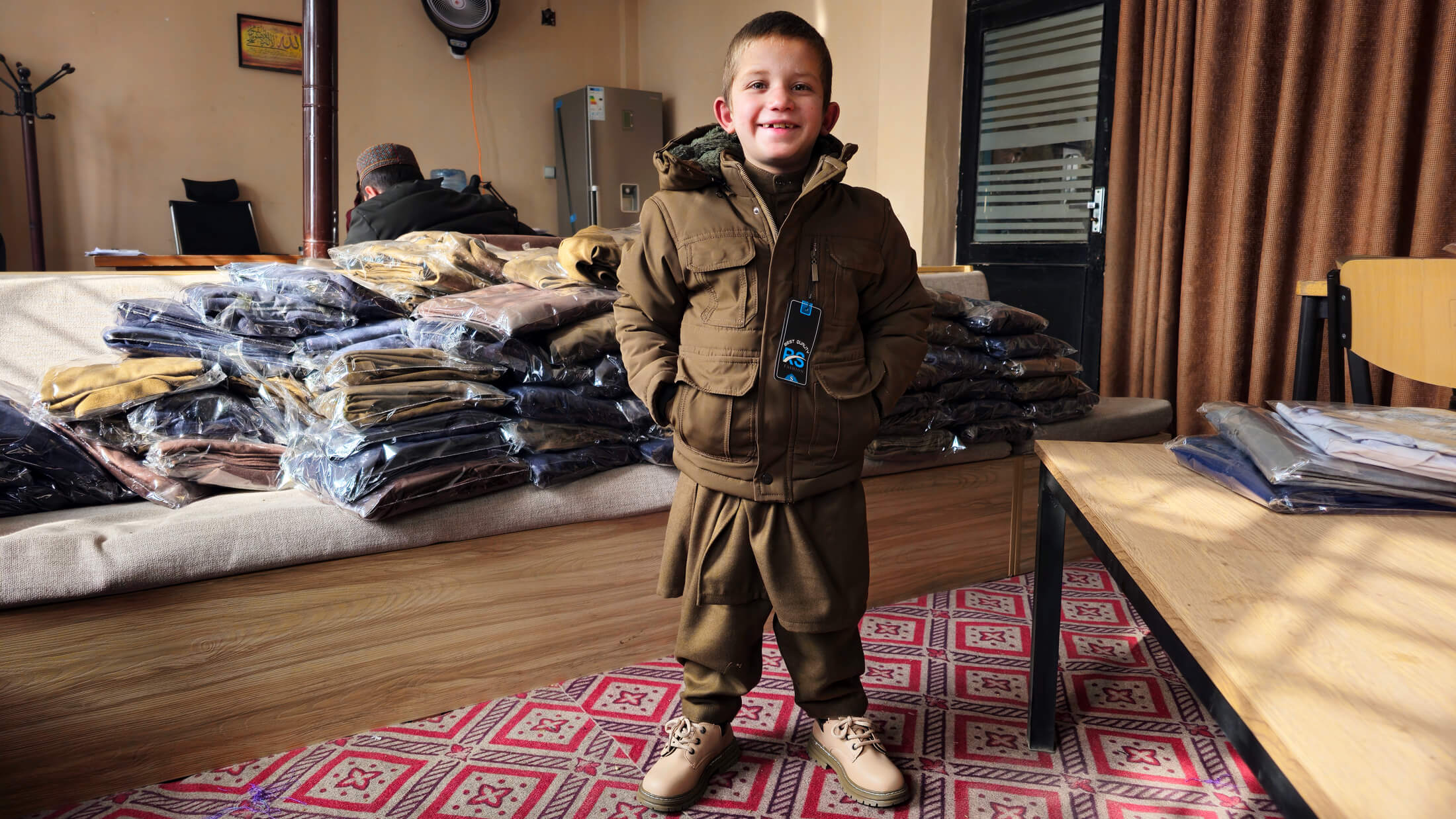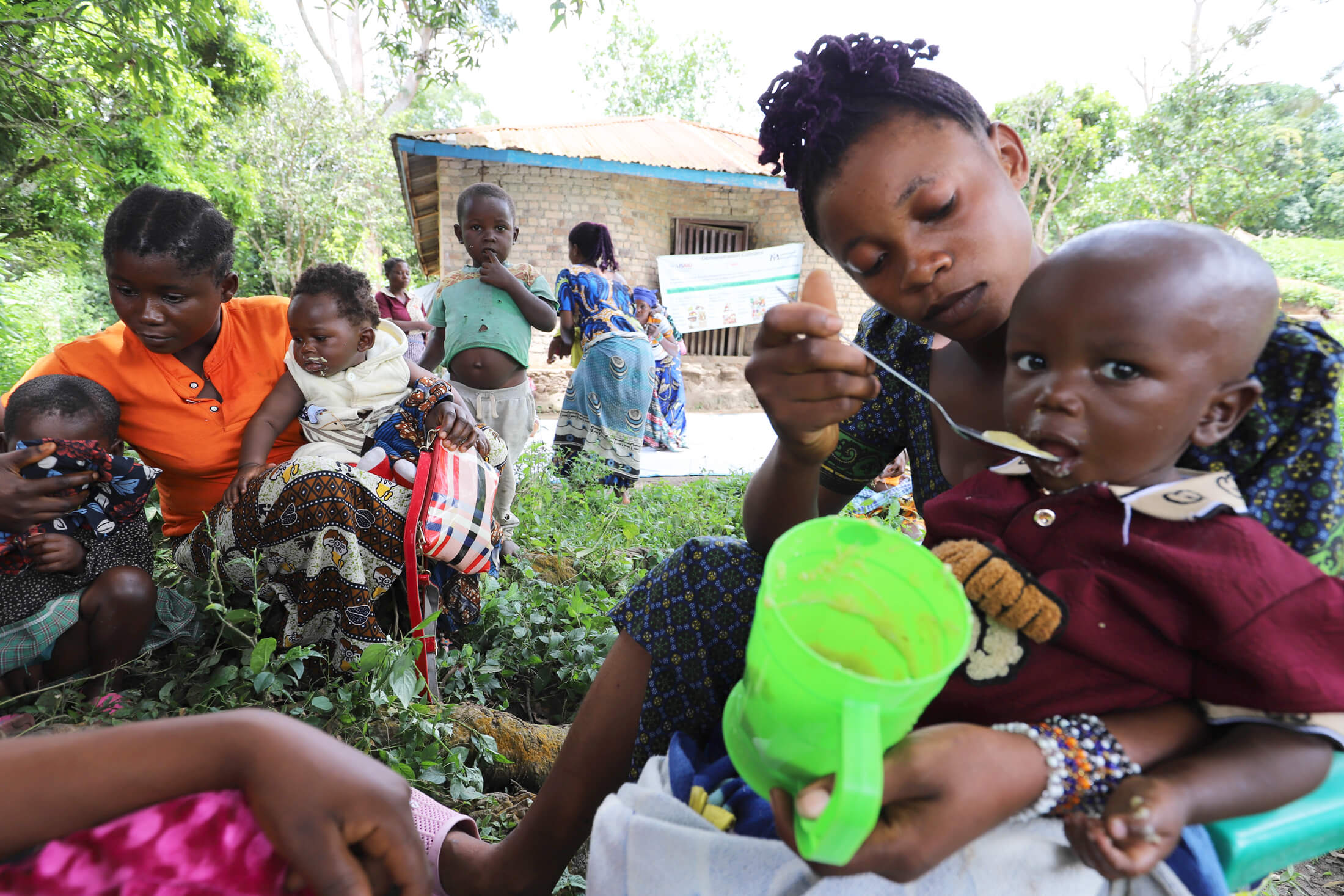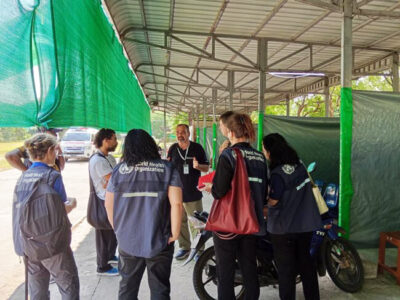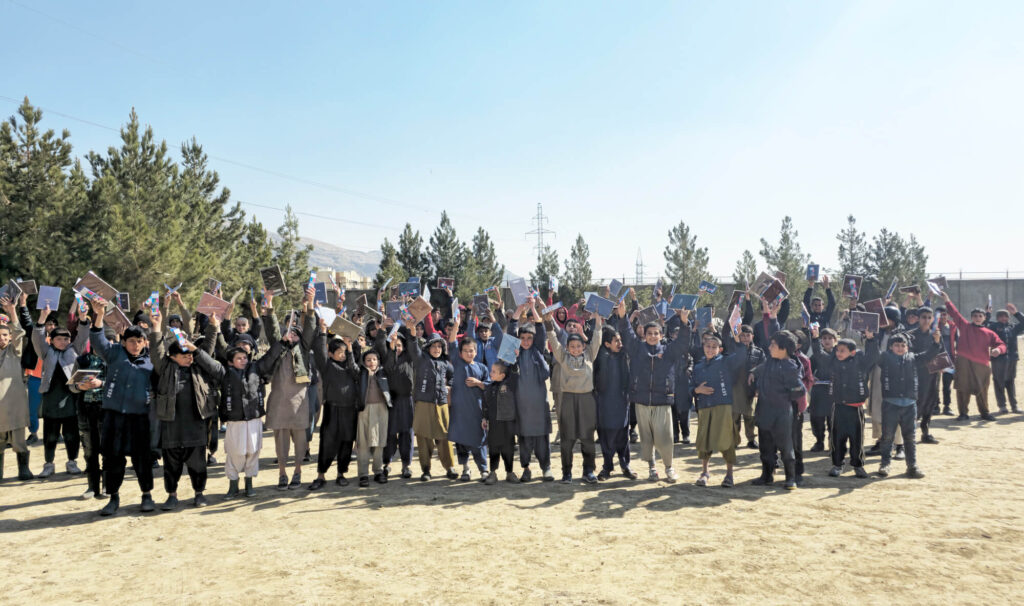Bringing Clean Water and Warmth to Afghan Children
Decades of conflict in Afghanistan has left many children without parents. At the Azad Children Transitional Center, having clean, safe water is essential for the health and well-being of the orphaned children who live there. That’s why International Medical Corps repaired the centre’s water supply system, ensuring that the children have a steady supply of clean water for drinking and washing. This vital improvement helps keep illnesses at bay and creates a healthier, more secure place for the children to grow.


Along with repairing the water system, we also provided school supplies and essential winter necessities—such as warm clothes and blankets—so the children can stay healthy and comfortable during cold temperatures. Thanks to our supporter, we have been able to make a big difference in the lives of vulnerable children, helping to ensure that they stay healthy and thrive year-round.

Promoting Nutrition in the DRC
International Medical Corps has been working in the Democratic Republic of the Congo since 1999, providing vulnerable families with a wide range of health services. These include tracking and responding to outbreaks of disease, providing nutritional support, offering medical care, protecting children and more. Today, we continue to serve people living in some of the most remote and hard-to-reach areas of North Kivu, South Kivu and Tanganyika provinces in the eastern part of the country.

To help address the challenges of malnutrition and food insecurity among these communities, our nutrition team recently held a cooking demonstration to show mothers how to prepare nutritious meals for their children using ingredients that are easy to find locally. This hands-on approach helps families make the most of what they have while ensuring that their children get the nutrients they need to grow healthy—because every child deserves a chance.


Serving Patients and Welcoming Guests at Our Myanmar Field Hospital
The devastating 7.7 magnitude earthquake in Myanmar at the end of March caused major destruction to infrastructure—including health facilities. As a result, more than half a million people were left without access to healthcare. In the aftermath of the quake, International Medical Corps set up a field hospital near the capital city of Nay Pyi Taw, at the site of a destroyed 300-bed facility—bringing lifesaving care to communities lacking health services. Despite temperatures soaring above 100°F (37.8°C), our Emergency Medical Team supported and trained local health workers, who treated more than 100 patients daily, addressing everything from chronic conditions to illnesses caused by limited access to clean water.


We also were honoured to welcome Dr. Swe Zin Win, Regional Director of the Myanmar Ministry of Health, as well as representatives from the World Health Organization. These visits highlighted the importance of coordinated, collaborative emergency response.


Though our field hospital has now closed, our commitment to the people of Myanmar continues. We continue to work closely with local partners to deliver urgent medical care and strengthen community health systems. Our teams remain committed to building long-term resilience in Myanmar’s hardest-hit areas.

Offering Healthcare Services for Vulnerable Communities in Venezuela
Venezuela’s ongoing economic crisis has significantly affected the healthcare system, leaving many clinics and hospitals without the basic supplies they need to care for patients and prevent illness.


In Venezuela’s remote Bolívar and Delta Amacuro states, International Medical Corps is bringing lifesaving care to some of the country’s most underserved communities. Our efforts focus on people who often face the greatest challenges in accessing services—especially women, girls, children and Indigenous communities. By combining healthcare, nutrition support, clean water and sanitation efforts, as well as services to prevent and respond to violence against women and girls, we’re helping families get the well-rounded support they need to stay healthy and safe.




Our programme tackles the most urgent health issues in these areas—from treating common illnesses to identifying malnutrition in children and pregnant and breastfeeding women. We also offer mental health support to help people manage emotional stress and create safe spaces where children can feel secure. And we’re improving access to clean water and sanitation in health centres and communities to help stop the spread of waterborne diseases and reduce the risk of larger health crises.
Fighting Infectious Diseases Worldwide
The COVID-19 pandemic was a powerful reminder of how devastating infectious diseases can be—especially in communities with limited access to care. Today, infectious diseases remain a serious global health concern. Outbreaks of cholera, dengue, Ebola and mpox continue to affect too many communities, driven by extreme weather, limited access to healthcare and the spread of misinformation. In response, International Medical Corps provides care for affected communities, distributes prevention supplies and strengthens local health systems.


But our work doesn’t stop there. We also focus on long-term solutions such as training healthcare workers, improving disease monitoring and helping communities stop outbreaks before they spread. Our teams install clean water systems, teach health and hygiene practices and work to build trust by addressing harmful misinformation. By partnering closely with local organisations, we help communities become more resilient and better prepared to face future health challenges.
Learn more about International Medical Corps
Follow International Medical Corps on Facebook, Twitter, Instagram, LinkedIn, TikTok, Threads, Bluesky and YouTube.
Are you a journalist looking for information?
International Medical Corps is a global first responder that delivers emergency medical and related services to those affected by conflict, disaster and disease, no matter where they are, no matter the conditions. We also train people in their communities, providing them with the skills they need to recover, chart their own path to self-reliance and become effective first responders themselves. Established in 1984 by volunteer doctors and nurses, we are a nonprofit with no religious or political affiliation, and now have more than 8,000 staff members around the world, 96% of whom are locally hired. Since our founding, we have operated in more than 80 countries, and have provided more than $4.2 billion in emergency relief and training to communities worldwide.
Our staff includes experts in emergency medicine, infectious disease, nutrition, mental health, maternal and infant health, gender-based violence prevention and treatment, training, and water, sanitation and hygiene, all within the humanitarian context.
To arrange an interview on or off the record, contact our Media Relations team at media@internationalmedicalcorps.org.
